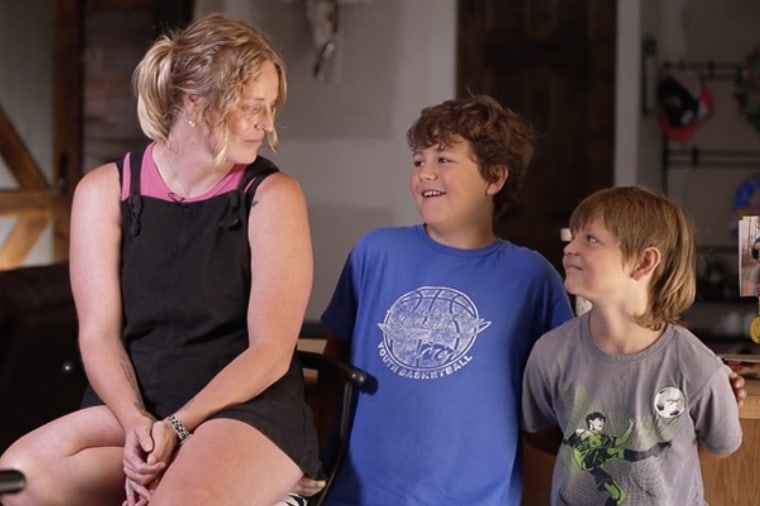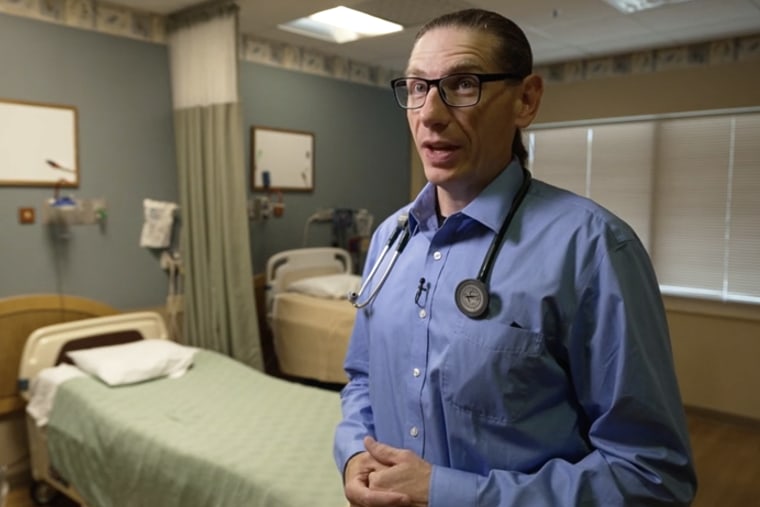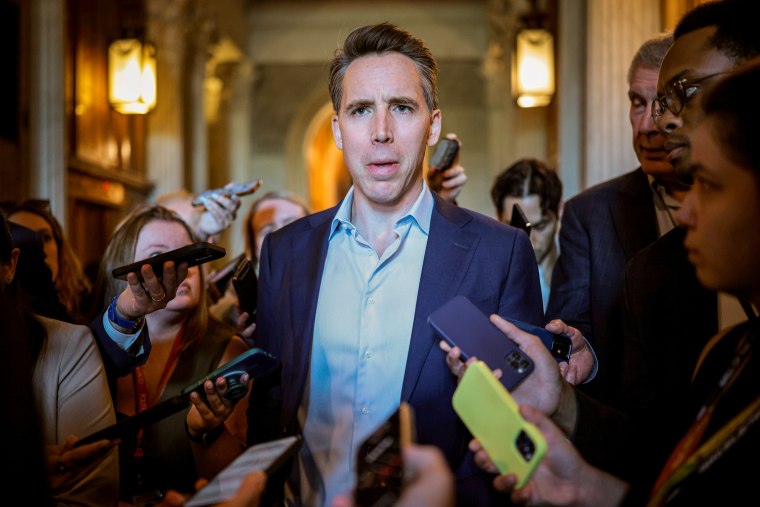HERMANN, Mo. — Like many Americans, Cierra Matthews doesn’t have time to pay close attention to the flood of policy changes and announcements coming out of Washington, D.C. So when the single mom of two boys heard that her Medicaid benefits could be affected because Republicans are proposing changes to the social safety net program, she was shocked.
Members of Congress, Matthews said, are “covered no matter what, so they don’t have to worry about it. So how is that fair to just take it away from somebody that does have to worry about it because of finances or because of a job?”
“I don’t think it’s fair that they don’t care enough to think about that, and that they get to live in that happy little bubble of theirs,” she said in an interview on Friday.
Matthews lives in a rural community 90 minutes west of St. Louis, where she works in the public school system and falls below the poverty line. She is one of 72 million people in the U.S. who rely on Medicaid for her health care, and before Missouri voted to expand Medicaid access in 2020, she was uninsured.
She said Medicaid saved her life: She received a mental health diagnosis and is on medication that her sons said transformed their mom into a different person.

Provider tax crackdown
As part of a sweeping domestic policy bill, Republicans proposed adding work requirements for “able-bodied” adults ages 19-64 with exceptions, including for those with dependents under 14, like Matthews.
But GOP lawmakers have also included provisions in their so-called “One Big Beautiful Bill” to crack down on the health care provider tax that states charge health care providers to help fund Medicaid, particularly in rural areas. Under the new proposal, the federal government would limit reimbursement to states, with some conservatives citing “abuse” of the program by undocumented migrants in blue states.
A cap or freeze on that fee would cost rural hospitals, like the Hermann Area District Hospital, billions of dollars in funding, according to providers, physicians, hospital associations and even some Republican lawmakers. They include Sen. Josh Hawley, R-Mo., who argued the provision would “defund” rural hospitals.
Dr. Michael Rothermich, the chief of staff at the Hermann hospital, said it is already treading water with current funding levels.
“We’ve had to make a lot of tough choices, a lot of cutbacks. We’ve had to freeze salaries. The saddest for me was that we had to let go of our home health agency,” a service that helped rehabilitate people in the remote area, Rothermich told NBC News.

With the steeper cuts proposed by Republicans, Rothermich said, there is no more room to trim.
“There’s no magic money that pops up from some place else or falls out of the sky to help us do our job. … We provide services to patients, and we need to be reimbursed for those services so that we can take care of the next patient and we can buy the next medicine and we can buy the next piece of equipment,” he said.
The hospital has just three full-time physicians on staff to service patients in two counties, where 1 in 4 rely on Medicaid.
“There are fewer and fewer people to take care of it and fewer and fewer resources to try and do what we need to do to take care of people,” Rothermich said.
In southern Missouri, Karen White, the administrator for Missouri Highlands Health Care, said the new provisions could mean they need to prioritize which patients to care for.
“I think we will see loss of life, maybe not immediate, but if chronic conditions go untreated for an extended period of time, it does result in lower quality of life, less people working,” White said. “We’ve lost three hospitals in the last 10 years in our region, and that has left Missouri Highlands as the only form of health care.”
Missouri Highlands is a federally qualified health center, or FQHC — a community-based health care provider that relies on federal funding to operate. White said 46% of the population there is on Medicaid, and Missouri Highlands is the only health care provider in a three- to four-hour radius.
Republicans pitch a rural hospital fund
To help address the shortfall Republicans are creating as part of their bill to fund President Donald Trump’s campaign promises, Senate leaders are working on a separate fund that would go directly to rural hospitals. Senate Majority Leader John Thune, R-S.D., told NBC News on Tuesday that in response to “a number of concerns our colleagues had mentioned” about their rural constituents, they are “making good headway” on a solution.
One such proposal landed Wednesday from members of the Senate Finance Committee, the panel with jurisdiction over Medicaid, to funnel $15 billion to rural health care providers. But multiple Republican senators, including Hawley, Thom Tillis of North Carolina and Susan Collins of Maine, feared it wasn’t enough.
“I don’t think that solves the entire problem,” Collins told reporters Wednesday. “Any money is helpful, but no, it is not adequate.”

The American Hospital Association, a group that lobbies on behalf of the industry, estimates that rural hospitals would lose $50 billion over the next decade if the GOP’s crackdown on the provider tax went into effect. And an analysis from the Urban Institute found that hospitals overall could lose upward of $300 billion as a result of the provision.
Tillis circulated a document to his Senate colleagues Monday that illustrates the potential impact on rural health care providers in Republican states. Tillis argued that in North Carolina, 600,000 people could lose access to health care as a result of Republicans’ changes to Medicaid, and he warned the party it could face losses in the 2026 midterm elections reminiscent of Democrats’ defeats in 2014 after a rocky Obamacare rollout.
Matthews said that because of this issue, she partially regrets her vote in the 2024 presidential election, especially given the administration’s push to realize the cuts.
“Why does somebody else get to make those choices for you? Why is somebody else in charge of [Medicaid]? For you? I don’t think it’s fair,” she said.
And White said she doesn’t understand why Republicans are committing “political suicide” by including the provisions in their signature piece of legislation.
“It does seem a little odd that the folks that elected [Republicans] will be the ones that are impacted the most with these cuts,” she said.